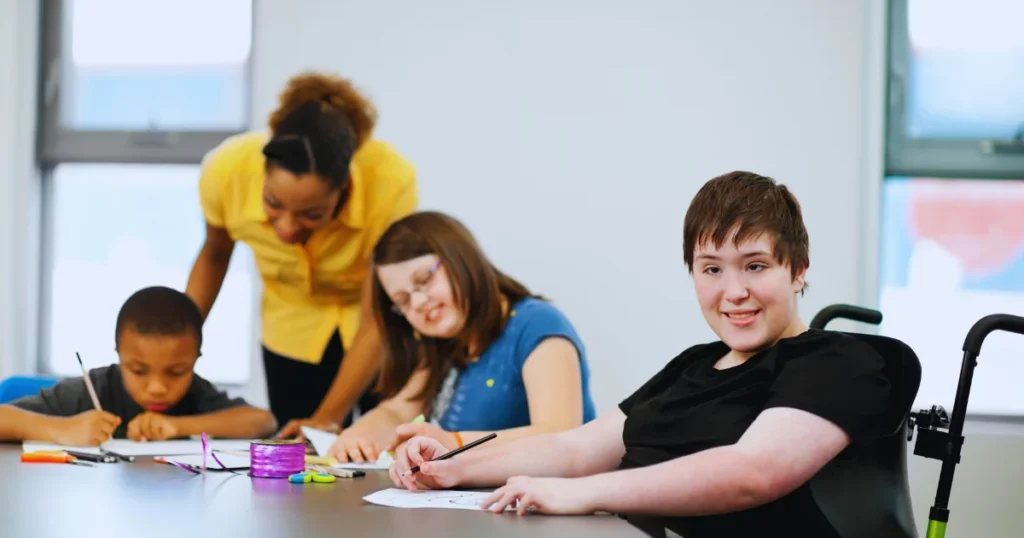Engaging in activities for learning disabilities is vital in improving cognitive, social, and emotional development. These activities offer children and adults opportunities to improve daily living skills, promote independence, and encourage meaningful social interaction.
Such activities help individuals develop, allowing personal growth and overall well-being.
Table of Contents
Understanding Learning Disabilities and the Role of Activities
What Are Learning Disabilities?
Learning disabilities are lifelong conditions that affect the way a person processes information, making it challenging for them to understand and learn new skills. This can impact daily tasks, school, work, and social interactions. Some key characteristics of learning disabilities include:
- Difficulty understanding new or complex information.
- Struggles with learning new skills, like reading or problem-solving.
- Challenges with effective communication.
- Trouble managing tasks independently.
Some common examples of learning disabilities include:
- ADHD: Difficulty with attention and impulse control.
- Autism: Challenges in social communication and repetitive behaviors.
- Dyslexia: Difficulty with reading, spelling, and language processing.
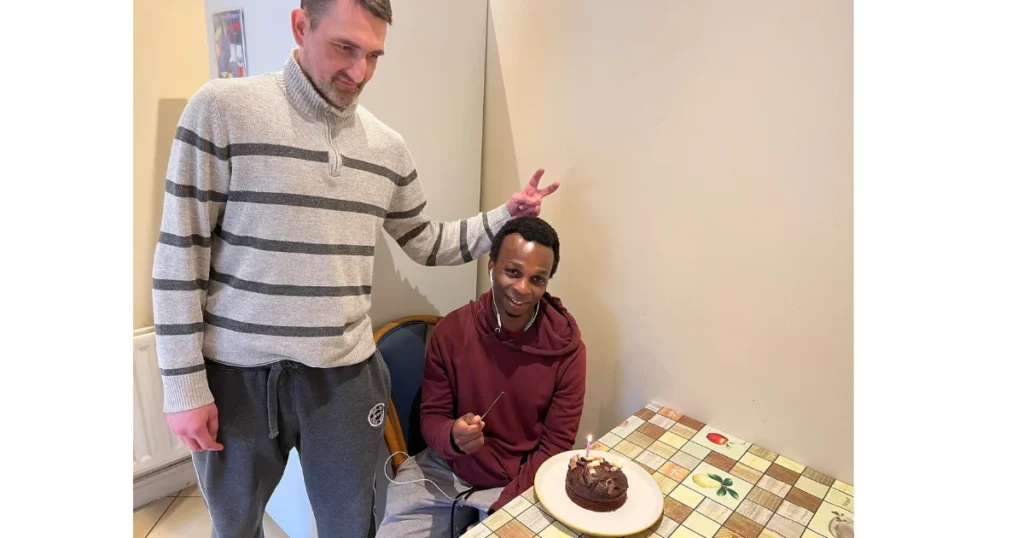
People with learning disabilities may struggle with everyday tasks. Engaging in structured Learning Disabilities care can help them handle these challenges and improve their quality of life.
Why Are Activities Essential for People with Learning Disabilities?
Activities for people with disabilities play a crucial role in helping individuals build important life skills. Here are some interactive learning strategies:
- Cognitive exercises such as puzzles or memory games improve focus and problem-solving abilities.
- Social interaction through group activities helps individuals build relationships and improve communication skills.
- Daily tasks like cooking or crafts encourage independence and self-sufficiency.
- Emotional well-being is supported by activities like music therapy, which reduces stress and boosts confidence.
Sensory Activities for People with Learning Disabilities
Sensory activities can be a powerful way of helping individuals with learning disabilities manage their cognitive and emotional needs. Here are some sensory play ideas that can benefit individuals with disabilities and help promote better well-being.
Tactile Play
Tactile play involves the use of different textures to stimulate sensory processing. This type of activity can be especially helpful for people with learning disabilities to explore and make sense of their surroundings.
By using materials such as sand, rice, or water beads, individuals can experience a variety of sensations that promote motor skill development and help reduce anxiety.

Tactile play is all about exploring the sense of touch in a comforting way. Key tactile activities include:
- Playing with water beads or sponges.
- Pouring or scooping rice or sand.
- Shaping clay or playdough.
Aromatherapy
Aromatherapy is a wonderful way to introduce calm and comfort into a person’s daily routine. The sense of smell is used to promote relaxation and reduce stress using essential oils like chamomile or lavender.
For individuals with special needs, certain scents can help create a peaceful environment, helping them feel secure and relaxed. Key methods for aromatherapy include:
- Using essential oils for relaxation.
- Introducing calming scents during quiet activities.
- Creating a soothing environment with scented diffusers.
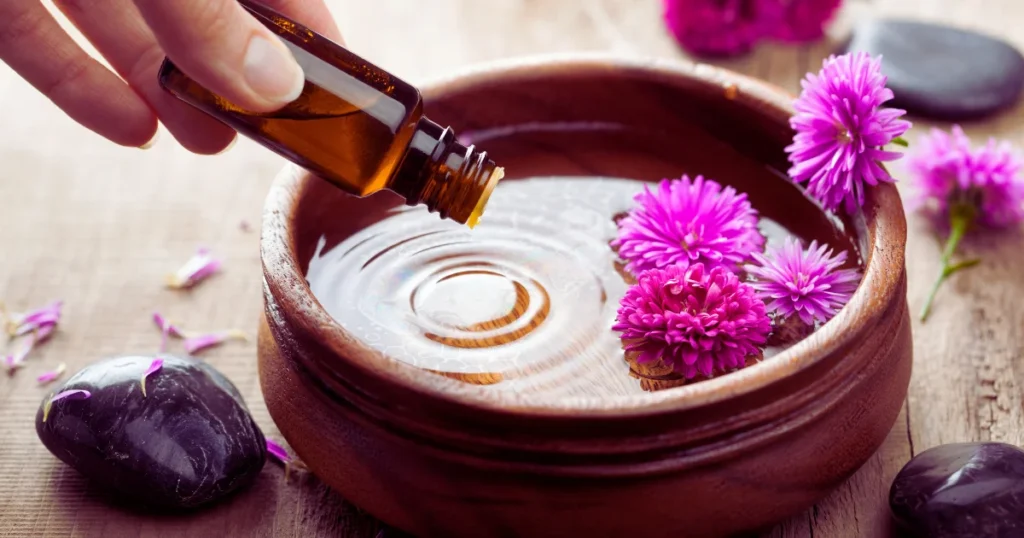
Music Therapy
Music therapy is an engaging and effective way to support emotional regulation, social interaction, and overall mental well-being for people with learning disabilities.
Music, whether through singing, playing instruments, or simply listening, connects people. It also provides a creative outlet for self-expression and reduces stress. Key methods for music therapy include:
- Singing along to familiar songs.
- Using percussion instruments for rhythmic expression.
- Playing simple instruments for emotional connection.
- Participating in group music sessions for social bonding.
With the help of music therapy, one can engage with their emotions, feel a sense of achievement, and benefit from social interactions through these activities.
Indoor Activities for Adults and Children with Learning Disabilities
Taking part in indoor activities can be beneficial for people with learning disabilities. Creativity, fine motor skills, problem-solving, and socialisation are all improved through these activities.
Arts & Crafts
Arts and crafts activities offer many benefits for individuals with disabilities by promoting creativity, emotional expression, and fine motor skills. These activities help develop hand-eye coordination and provide an outlet for self-expression. Here are some ideas:
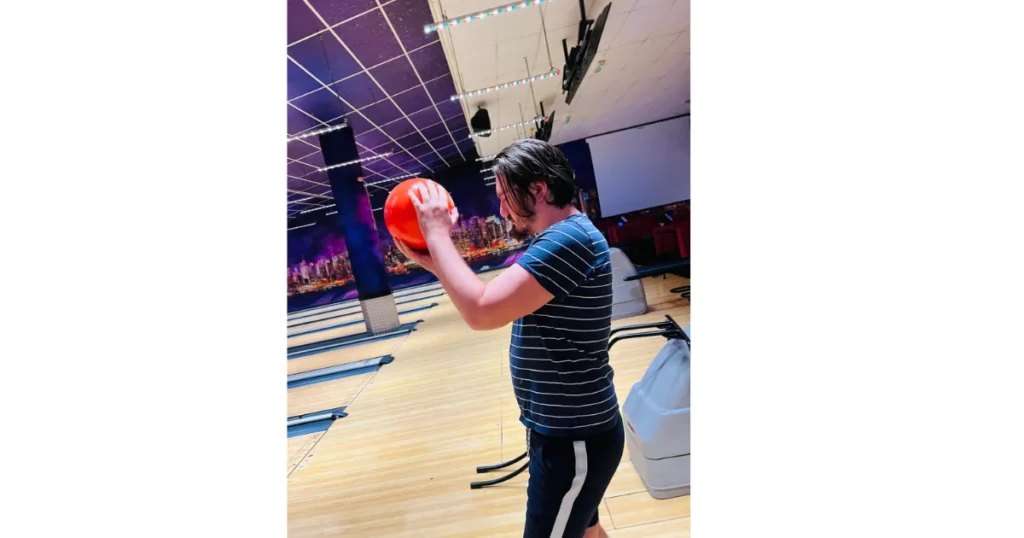
- Finger painting: Encourages sensory play and creativity.
- Cutting and gluing: Create colorful collages.
- Crafting with clay: Enhances tactile exploration and fine motor skills.
- Origami: Builds concentration and precision.
- Beading: Improves hand coordination.
- Paper mache creations: Fun and engaging craft projects.
- Fabric decoration: Encourages creativity and personal expression.
Cooking
Cooking is an engaging activity that builds important life skills like planning, sequencing, and completing tasks. It encourages independence by promoting responsibility.
Cooking simple recipes, such as sandwiches or salads, can help improve motor skills, understanding of sequences, and problem-solving skills—all while having fun. Key cooking activities include:
- Mixing ingredients to build coordination.
- Chopping soft fruits or vegetables using easy-to-hold tools.
- Following recipes to develop sequencing and organisational skills.
Games
Playing games is a fantastic way to develop problem-solving and teamwork skills. They provide a fun way to work on different skills, from motor control to logical reasoning, without feeling like a chore. Some effective games include:
- Memory games like matching cards to improve recall and focus.
- Building blocks to foster creativity and planning.
- Board games such as Snakes and Ladders to develop social skills like turn-taking and patience.
These indoor activities provide enjoyable ways to practice fine motor skills exercises. Arts and crafts, cooking, and playing games all support cognitive development and promote independence, creativity, and social growth, helping individuals lead a fulfilling life.
Difference between autism and learning disabilities.
Outdoor Activities for Adults and Children with Learning Disabilities
Outdoor activities provide opportunities to connect with nature, engage socially, and take part in fun and enriching activities.
Gardening
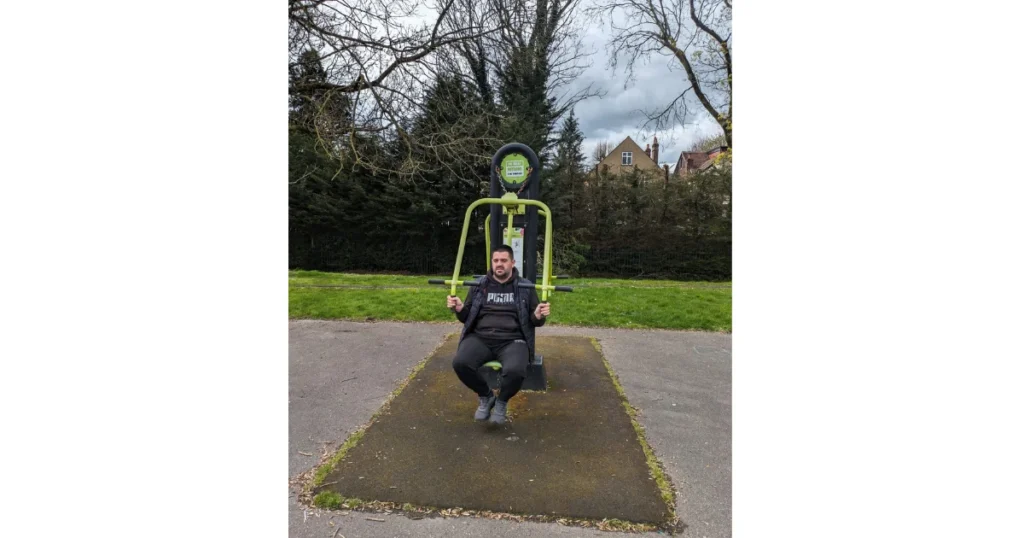
Gardening not only promotes a connection with nature, but it also has other benefits such as increased patience, attention, and relaxation. Planting flowers, watering, and weeding are all relaxing activities that help to develop fine motor skills.
Key benefits of gardening include:
- Focus on specific tasks, such as planting seeds and watering.
- Building patience by waiting for plants to grow.
- Promoting relaxation in a peaceful setting.
Walks and Visits to Parks
Outdoor walks and visits to parks are simple but powerful activities for improving physical health and promoting social interaction. Walking is a gentle form of exercise that can be adapted to the needs of each individual.
Parks offer open spaces to explore, connect with nature, and take part in light activities:
- Walking for gentle exercise and physical fitness.
- Visiting parks for sensory stimulation and relaxation.
- Opportunities for social engagement with others.
These activities can be particularly beneficial for social skills development, as they provide opportunities to meet new people in a relaxed environment.
Group Outings and Clubs
Group outings and clubs are great ways to learn socialisation. Going on group outings, whether to museums, local events, or community centres, allows individuals to build friendships and feel part of a community.
Participating in clubs or group activities encourages individuals to communicate, share experiences, and work together toward common goals. Some benefits include:
- Building friendships and fostering social interaction.
- Developing communication skills in a comfortable setting.
- Experiencing a sense of belonging in a community group.
Helpful FAQs about care for learning disabilities
Educational and Cognitive Development Activities
Educational and cognitive development activities are critical for building academic skills and mental growth. Here are some practical steps to try some activities.
Educational games for special needs
Educational games and puzzles can be adapted to meet the individual’s level, making learning enjoyable. Instead of traditional puzzles, you could use familiar items.
For instance, matching different coloured socks or creating patterns using household items can be an exciting way to work on cognitive development without needing special tools.
Practical Tips:
- Create a matching game using household items like spoons, cups, or socks.
- Adjust rules in classic games like “Simon Says” to match individual preferences.
- Use daily objects to create patterns and sequences for puzzle-solving.
Learning a New Language
Learning a new language can significantly aid cognitive development. With the right approach, it helps boost confidence and overall growth.
Begin with foundational phonological skills, which are key to easier language learning.
- Use everyday activities, like mealtime, to introduce new words.
- Create flashcards with images and words to make learning engaging.
- Slow down the teaching pace, focusing on simple terms.
- Include multisensory methods—like gestures or sounds—to reinforce vocabulary.
- Start with a language similar to the native one for smoother learning.
Adaptive Journaling
Adaptive journaling is more than writing; it’s about expressing feelings creatively, supporting mental well-being, and nurturing personal growth. Some tips:
- Use videos or images to inspire ideas.
- Provide prompts like “What made you happy today?” for guidance.
- Incorporate different mediums—like drawing, stickers, or voice recordings.
- Allow revisions for fresh perspectives.
- Keep it judgment-free; let emotions flow naturally.
Mindfulness Meditation for Emotional Well-Being
Mindfulness meditation can help people with learning disabilities manage stress, anxiety, and emotional well-being. This practice can be broken into two types:
- Focused-Attention Meditation: Choose an object, sound, or thought to focus on. Sit comfortably, take deep breaths, and redirect your attention whenever it wanders.
- Open-Monitoring Meditation: Be mindful of your surroundings, thoughts, and emotions without judgement. Sit in a quiet place, notice your feelings, and allow them to pass naturally.
Practical Tips:
- Use a Quiet Space: Set aside a few minutes daily in a calm, comfortable spot.
- Start Small: Practice for 2-5 minutes initially, then gradually extend the time.
- Use Guided Apps: Apps like Headspace or Calm offer easy instructions to follow at home.
Social Activities for Adults with Learning Disabilities
Social activities are vital for improving social skills in adults with learning disabilities.
Activities like volunteering, theatre workshops, and joining clubs are essential in building confidence, nurturing connections, and giving individuals a sense of belonging within their community.
Volunteer Opportunities
Volunteering increases confidence, teamwork, communication skills, and purpose. It builds social networks and positive growth through meaningful community activities.
Tips for Starting Volunteering:
- Begin with simple and familiar tasks for comfort.
- Match volunteer roles to personal interests for motivation.
- Arrange a mentor or buddy to help with initial adjustments.
- Participate in small local events or community projects.
Drama or Theatre Workshops
Drama workshops can help build self-confidence, encourage emotional exploration, and improve communication skills through acting and role-playing exercises.
Trying different roles helps develop empathy, allowing individuals to connect with others better.
Ways to Engage in Drama Activities:
- Start with short, easy role-playing games to build comfort.
- Let individuals choose roles that resonate with them.
- Encourage participation in on-stage and behind-the-scenes roles.
Clubs and Support Groups
Clubs focusing on shared interests, like gardening or art, offer a relaxed setting for socialisation. Support groups provide a safe space for individuals to share experiences.
These activities help reduce feelings of isolation, creating a sense of community and belonging. Social activities like
- volunteering,
- theatre workshops, and
- joining clubs
play a key role in social skills development for adults with learning disabilities. They offer opportunities for interaction, friendship, and community, making individuals feel valued and connected in their environment.
Qualities to Look for in Learning Disability Care Providers
Adapting Activities for Individual Needs
Here are some ideas to adapt activities for different needs:
- Simplify Instructions: Break tasks into small, manageable steps and use clear instructions.
- Use Visual Aids: Use images or videos to support understanding.
- Provide Choices: Offer different activities to match personal interests and abilities.
- Adjust Pacing: Allow more time for activities so that everyone can take part comfortably.
- Create a Supportive Environment: Minimise distractions and create a calm setting for better engagement.
Using the right tools can significantly improve participation in activities. Here are a few useful tools:
- Adaptive Toys: Toys with larger grips or easy-to-use features can make activities accessible and enjoyable.
- Educational Apps: Apps designed for cognitive development exercises can offer interactive puzzles or visual aids to make learning more fun.
- Assistive Devices: Touch-screen tablets, voice-controlled apps, and adaptive keyboards can help individuals engage more fully in activities.
By making thoughtful adjustments, we create opportunities for everyone to learn, grow, and participate in meaningful activities, regardless of their abilities.
Signs of learning disability in adults
Conclusion: How Activities Improve the Lives of People with Learning Disabilities
Engaging in activities for disabled adults promotes growth, social skills, and independence. They can improve emotional health and help individuals develop essential life skills, providing them with confidence and a sense of belonging.
These meaningful experiences make a significant difference in the well-being of both children and adults. If you’re seeking support, reach out to Metro Care UK to explore how their services can provide your loved one with the personalised care and opportunities they need to thrive.
FAQs
What types of activities are beneficial for individuals with learning disabilities?
Activities like sensory play, educational games, arts and crafts, and outdoor exercises can be incredibly helpful. These activities focus on enhancing different skills, such as coordination, social interaction, and emotional well-being. They bring a lot of joy and learning opportunities in a fun way.
Can art therapy be beneficial for individuals with learning disabilities?
Absolutely! Art therapy is a wonderful way for people to express their emotions without needing words. It can help boost confidence, reduce anxiety, and even improve fine motor skills while allowing creativity to shine.
How can activities improve learning for individuals with disabilities?
Engaging activities make learning more enjoyable. They simplify difficult concepts, making it easier to understand through practical experience. Activities also help with focus, problem-solving, and building self-confidence—all essential for learning and growth.
What are sensory activities, and how do they help?
Sensory activities are designed to engage different senses like touch, sound, or smell. They are particularly helpful in improving sensory processing skills, reducing anxiety, and making individuals feel more comfortable with their environment. This approach can make a big difference in everyday interactions and overall well-being.

